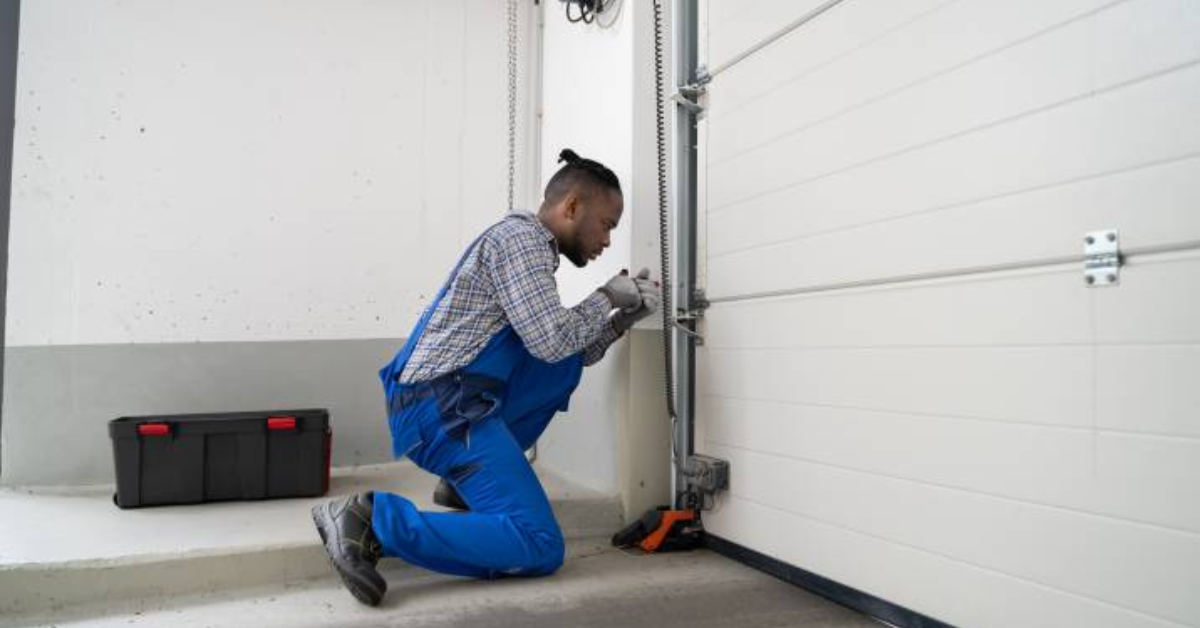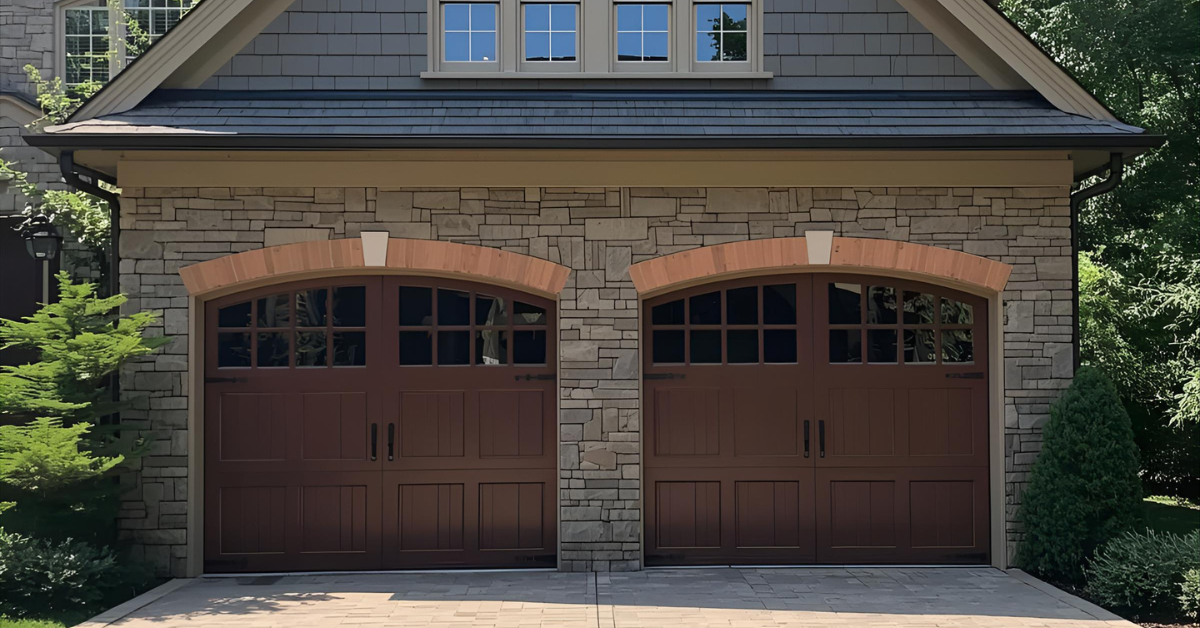The Pros and Cons of DIY vs. Professional Garage Door Repairs
Your garage door, a silent sentinel of your home, is often taken for granted until it begins to show signs of wear and tear. When that time comes, you face a crucial decision: should you roll up your sleeves, grab your toolbox, and tackle the repairs yourself, or should you entrust the task to a seasoned professional? It's a choice that extends beyond the confines of your garage, reaching into your wallet, your schedule, and the overall safety and functionality of your home.
In this exploration of the pros and cons of DIY (Do-It-Yourself) versus
professional garage door repairs, we will unlock the secrets of both avenues. We'll look into the allure of self-sufficiency and the satisfaction of fixing things with your own hands, as well as the expertise, guarantees, and time-saving benefits that professional services can offer. By the time you reach the end of this guide, you'll be equipped to make an informed decision, ensuring that your garage door woes are resolved in the way that best suits your needs. This isn't just about
fixing garage doors; it's about making your home more convenient and safer.
The Pros of DIY Garage Door Repairs
There are many benefits to tackling garage door repairs on your own. Let's explore the key benefits:
Cost Savings:
- DIY garage door repairs can significantly cut down on expenses. By handling the repair work yourself, you eliminate labor costs and only need to invest in materials and tools.
- You have the freedom to shop around for cost-effective replacement parts or components, potentially saving even more money.
- Many common garage door issues, such as simple adjustments or minor fixes, are well within the realm of DIY, making it a cost-efficient choice for homeowners on a budget.
Sense of Accomplishment:
- Repairing your garage door by yourself can provide a profound sense of accomplishment. There's a unique satisfaction that comes from successfully troubleshooting and fixing a problem in your own home.
- Completing a DIY repair can boost your confidence in your handyman skills, encouraging you to take on more DIY projects around the house.
- It's a tangible way to take ownership of your home and contribute to its maintenance and well-being.
Flexibility in Scheduling:
- DIY garage door repairs allow you to work on your own timetable. You're not reliant on the availability of professional technicians or service appointments.
- You can start and finish the project when it's most convenient for you, whether it's during the weekend, in the evening, or whenever you have some free time.
- This flexibility ensures that you can address urgent issues promptly, without having to wait for a professional to fit you into their schedule.
While these advantages make DIY garage door repairs an enticing option, it's essential to balance them with a consideration of the potential drawbacks, which we'll explore in the next section.
The Cons of DIY Garage Door Repairs
As appealing as the prospect of DIY garage door repairs may be, it's essential to acknowledge the potential drawbacks and challenges that can arise. A few cons to consider are as follows:
Limited Expertise:
- Garage doors can be complex, comprising various moving parts and intricate mechanisms. Without a thorough understanding of how these components work, DIY repairs may lead to incomplete or incorrect fixes.
- Lack of experience can result in misdiagnosis of the issue, potentially causing more harm than good. What initially seemed like a simple problem could turn into a complicated, costly repair.
Safety Concerns:
- Working on a garage door, especially when dealing with heavy components and high-tension springs, can pose significant safety risks. Accidents during DIY repairs can lead to serious injuries.
- Without proper knowledge and safety precautions, you may inadvertently place yourself and others in harm's way. Professional technicians are trained to handle these dangers safely.
Risk of Further Damage:
- One of the most significant drawbacks of DIY garage door repairs is the risk of exacerbating the existing problem. In an attempt to fix one issue, you might inadvertently create new issues or damage other parts of the door.
- Long-term, this can result in more extensive repairs and higher costs. Additionally, any warranties on the garage door or its components may become void if untrained individuals attempt DIY repairs.
It's important to weigh these potential drawbacks against the benefits of DIY repairs. In some cases, the pros may outweigh the cons, but in others, seeking professional assistance may be the safer and more practical choice. Careful consideration of your expertise, the complexity of the repair, and the risks involved should guide your decision.
The Pros of Professional Garage Door Repairs
When you opt for professional garage door repairs, you're opening the door to a range of advantages that can make the process smoother and more reliable. Here are the key benefits:
Expertise and Experience:
- Professional technicians are trained and experienced in all aspects of garage door repair. They possess an in-depth understanding of the mechanisms, components, and potential issues that can arise.
- Their expertise allows them to quickly diagnose the problem and implement the most effective solutions, ensuring that the repair is done correctly the first time.
- With their years of experience, professionals have encountered a wide variety of garage door issues, making them well-equipped to handle even the most complex repairs.
Guarantees and Warranties:
- Reputable garage door repair companies often provide guarantees and warranties on their work and the parts they use. This means that if an issue arises shortly after the repair, you can have it addressed at no extra cost.
- These guarantees offer peace of mind and assurance of quality work. They underscore the confidence that professionals have in their ability to fix your garage door correctly.
Time Efficiency:
- Professional technicians are known for their efficiency. They can complete repairs swiftly, minimizing downtime for your garage door and the disruption to your daily routine.
- Time efficiency is especially valuable when dealing with a malfunctioning or stuck garage door, as it can be a significant inconvenience. Professionals prioritize prompt resolution.
By opting for professional garage door repairs, you not only benefit from their expertise but also gain the assurance of warranties and a speedy resolution. These advantages can save you time, stress, and potential additional costs in the long run.
The Cons of Professional Garage Door Repairs
While professional garage door repairs offer numerous advantages, there are some drawbacks to consider when deciding whether to hire a professional service. Here are the key cons:
Cost:
- Professional garage door repairs often come with a price tag. Hiring experienced technicians and using high-quality materials can be more expensive than DIY alternatives.
- The total cost may include not only the repair work itself but also any service fees, parts, and labor, which can add up quickly, especially for more complex repairs.
Dependency on Scheduling:
- Scheduling a professional garage door repair can sometimes be a time-consuming process. You may have to wait for an available appointment, which can be frustrating if your garage door issue is urgent.
- The availability of service technicians may be limited to specific days or hours, making it necessary to adjust your own schedule to accommodate the repair visit.
Potential for Over-Repairs:
- Some garage door repair companies may recommend or perform more extensive repairs than necessary. While their intention may be to ensure the door's long-term reliability, it can result in higher costs.
- Over-repairs can lead to unnecessary expenses and may not align with your budget or immediate needs. It's essential to communicate clearly with the professionals about the extent of the repair work required.
Balancing the advantages and disadvantages of professional garage door repairs is important in making the right choice for your situation. While the expertise and warranties are valuable, it's important to weigh them against the potential costs and scheduling constraints that may arise when opting for professional services.
Factors to Consider
When confronted with the task of deciding between do-it-yourself (DIY) garage door repairs and seeking the expertise of professional services, several crucial factors come into play. These considerations can significantly influence your choice, ensuring that the repair method aligns with the specific needs of your garage door.
Deciding Factors for Choosing DIY or Professional Repairs
The first and most critical factor to weigh is the nature of the problem at hand. Your decision will be heavily influenced by the complexity and severity of the issue. DIY repairs are well-suited for minor, straightforward problems, such as loose hinges or minor lubrication needs. In contrast, when facing more substantial issues like a malfunctioning garage door opener or significant structural damage, opting for professional expertise is often the wisest course of action. The level of skill and experience required to address the problem effectively should be a key consideration.
Severity of the Problem
The severity of the issue plays a pivotal role in guiding your choice between DIY and professional repairs. Minor issues can be tackled independently, often serving as a rewarding experience for those who possess the necessary skills and tools. However, for significant problems that could pose safety risks or have long-term implications, such as broken springs or electrical faults, professional technicians' experience is invaluable. They can ensure not only the problem's resolution but also the overall safety and functionality of your garage door.
Available Time and Skills
Assessing your own capabilities and the time you can allocate to the repair is another crucial factor. DIY projects can be an excellent option if you have the required skills and the available time. In these cases, you can save money by taking matters into your own hands for minor issues. Yet, if your schedule is tight, or you lack the confidence to handle the repair effectively, professional technicians are equipped to complete the job efficiently, minimizing downtime for your garage door and saving you the hassle of a time-consuming DIY project.
Budget and Cost Considerations
Budget constraints often drive the decision between DIY and professional repairs. DIY solutions tend to be more cost-effective for smaller, simpler repairs, as you mainly cover the cost of materials and parts. In contrast, more extensive issues may require specialized components and tools, making professional repairs a justifiable expense. It's essential to weigh the upfront cost of professional services against the potential long-term reliability they offer, as well as the assurance of warranties and guarantees provided by reputable repair companies.
Long-Term Reliability
Consider the long-term implications of your choice. While DIY repairs can save money in the short term, professional repairs often provide a more reliable, lasting solution. Technicians can ensure that the problem is not only resolved but that your garage door functions optimally for an extended period. The assurance of warranties and guarantees from professionals offers peace of mind, making their services a solid investment in the longevity and reliability of your garage door. Ultimately, the decision hinges on your assessment of these factors, striking a balance that best suits your unique circumstances and the needs of your garage door.
Conclusion
In the realm of garage door repairs, the choice between DIY and professional services is a pivotal decision. It hinges on understanding the complexity of the issue, your available time and skills, budget constraints, and the long-term reliability required. Whether you take the DIY route or seek professional help, the ultimate goal is a fully functional and secure garage door. By carefully considering these factors, you can confidently make the right choice for your garage door repairs, ensuring your home's safety and convenience.




